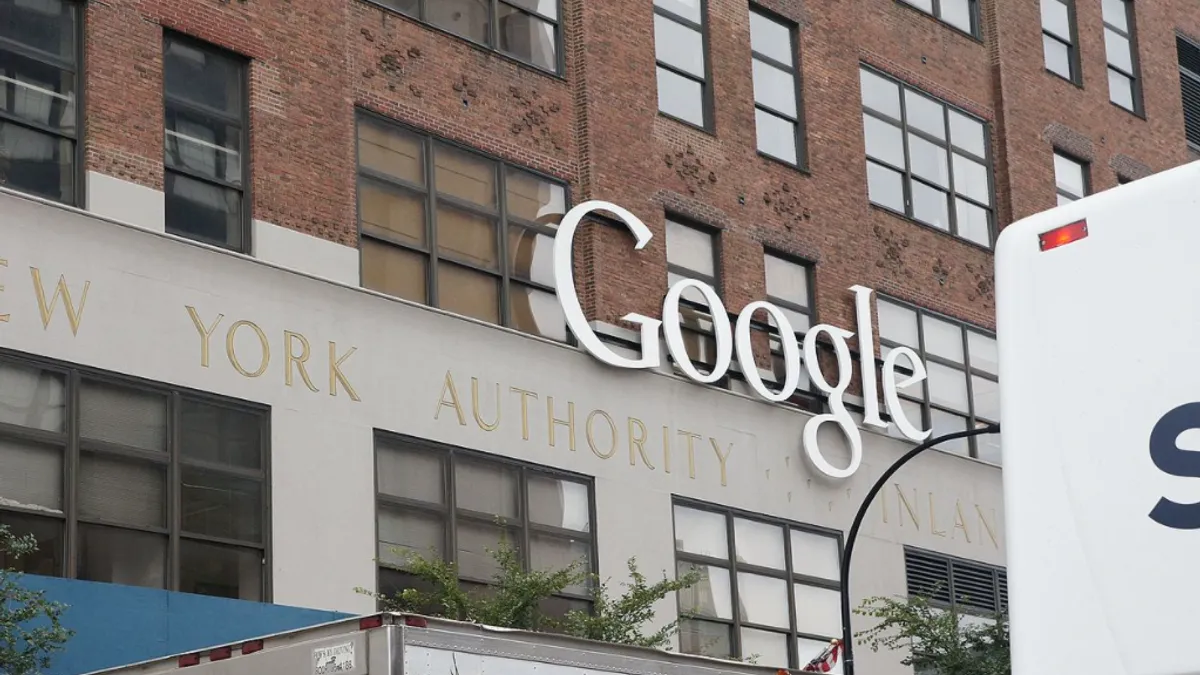Dive Brief:
- In a move that caught Silicon Valley executives by surprise, 225 Google engineers on Monday announced the formation of a union, the culmination of increasing activism among employees who disagree with the company's strategic priorities.
- The immediate impact on Google is expected to be limited; the new group is a minority union and not yet recognized by Google nor the National Labor Relations Board (NLRB). That means it can't force executives to the table to negotiate contracts.
- Labor specialists say the move is significant because it shows the tech industry, historically insulated from labor pressures, can be organized, and it creates a structure to grow the labor movement in one of the country's largest tech companies.
Dive Insight:
"If [the union] grows ... it could have huge impacts, not just for the workers, but for the broader issues we are all thinking about in terms of tech power in society," Veena Dubal, a law professor at the University of California, told The New York Times.
The new group, called the Alphabet Workers Union, is aligned with the Communications Workers of America. Those who join become members of the Local 1400. Membership is open to all of Google's 120,000-plus employees. The union fee is 1% of gross compensation.
The group is less motivated by money than by giving employees more say in the company's policies, say Google engineers and union representatives who were involved in creating the organization.
The typical Google engineer makes $145,000 a year, according to Glassdoor, four times the $36,000 national median.
"Our goals go beyond the workplace questions of, 'Are people getting paid enough?'" Chewy Shaw, a Google engineer and vice chair of the group's leadership council, told The New York Times.
Google employees have complained for years about some of the company's priorities, including AI work being dome with the U.S. Department of Defense and Customs and Border Protection, and what many consider an insufficient response to workplace sexual harassment.
Two years ago, some 20,000 employees protested the company's handling of a sexual harassment case, bringing unwanted attention to an issue executives wanted to handle internally.
Employees have also raised concerns over the lack of protection for airing internal concerns. Union organizers pointed to the treatment of Timnit Gebru, an AI ethics analyst, who was fired last year after calling out the company's lack of diversity progress, as one of several troubling actions.
"Workers who have organized to stop these trends have been met by intimidation, suppression, and blatantly illegal firings," the CWA said.
Long road ahead
Until the union attracts more members, Google executives have little incentive to formally recognize the group, limiting its effectiveness.
The group can petition for recognition by the NLRB, which would give it a venue for weighing disputes, but without Google executives' recognition, it can't compel the company to come to the negotiation table to settle disputes.
But it can tap the CWA's resources to wage public relations campaigns and also go before legislative and regulatory agencies to air issues. And as a minority union, it can bring in contract employees and temp workers as members, boosting its impact.
"We're going to use every tool that we can to use our collective action to protect people who we think are being discriminated against or retaliated against," Shaw said.
Its progress over the next several years could shape unionization efforts at other tech companies. Workers at Kickstarter and Glitch have recently unionized, but they lack the size and profile to change the landscape as much as Google.















